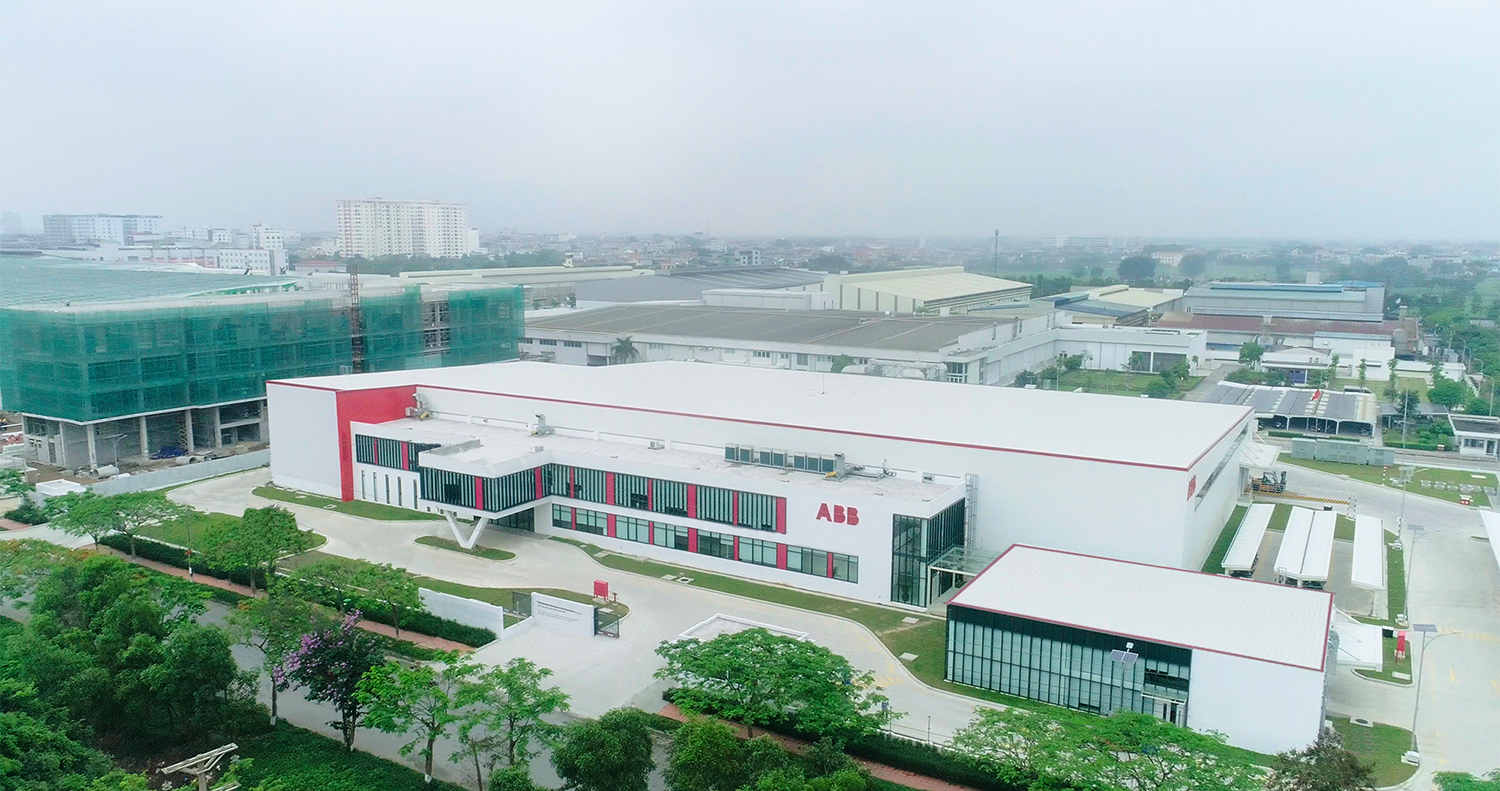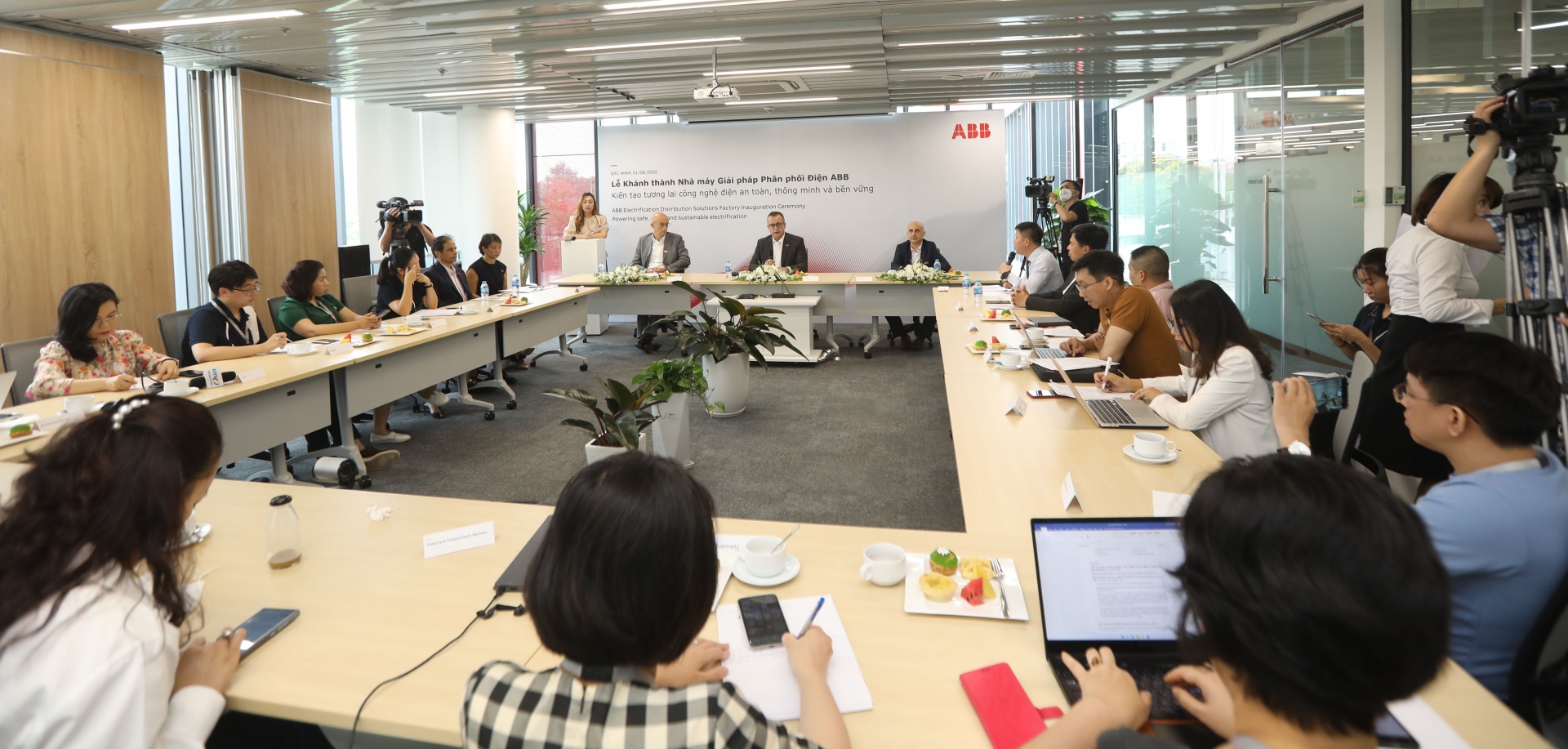ABB invests $6 million in state-of-the-art electrical distribution manufacturing hub
 |
| ABB invests $6 million into a state-of-the-art electrical distribution manufacturing hub in Bac Ninh |
Vietnam is one of Asia’s fastest-growing energy markets. The government expects power consumption to grow by 10-12 per cent annually until 2030. At the same time, industrial production in the nation continues to grow every year, rising by 9.4 per cent in April.
This, coupled with a 7 per cent growth in urbanisation, means that smart and efficient power distribution solutions – such as the medium voltage switchgear panels and modular systems manufactured by ABB – will be crucial to ensure that the next phase of the country’s economic growth also achieves its sustainability goals.
Covering a total area of 15,700 square metres, ABB’s new factory is double the footprint of the 10-year-old facility it is replacing and has significantly enhanced environmental credentials.
The building blocks are in place for future LEED certification, including the use of roofing material with optimal thermal conductivity and rainwater collection, the highest standards of air quality management, and the scope to install solar panels.
In addition, the ABB Ability Building Management System connects assets across the facility to allow remote monitoring and ensure energy-efficient operations.
The manufacturing hub will produce 2,000 panels of ABB’s UniGear Medium Voltage Switchgear and 700 units of plug-and-play modular systems for power distribution per year on production lines that are designed and set up on the successful lean manufacturing methods used in its European facilities.
Commenting on the investment, Matteo Caiti, division hub manager in Asia for ABB’s distribution solutions, said that “Our new high-tech and low-impact facility will bolster Vietnam’s economic growth and lay the foundations for a successful future for ABB in the region. It is purpose built to provide our employees with the best working conditions and ensure that we reduce our impact on the environment."
"More importantly, it will produce solutions designed to help our customers to reduce their emissions and energy wastage. As Asia-Pacific’s industrial growth continues to accelerate, this hub will position Vietnam as a centre for sustainable power distribution in the region,” he added.
 |
| The new sustainable electrical distribution manufacturing hub is expected to support economic growth in Asia-Pacific |
Despite restricted travel, customers across the world will now be able to keep track of the manufacture and assembly of their systems via state-of-the-art remote monitoring technology.
This involves testing engineers wearing a pair of augmented reality Microsoft HoloLens glasses and relaying what they see to the customer, allowing them to be virtually present in the factory and see their products being manufactured and tested without being on site.
With a current valuation of more than $850 million and a predicted annual growth rate of nearly 15 per cent, Vietnam is amongst the top ten emerging data centre markets in the world. In 2021, data centre capacity in Southeast Asia grew faster than in Europe.
ABB systems not only facilitate the reliable supply of power needed to keep these running but also distribute it evenly. The facility will also serve several export markets including Japan and Australia.
Alessandro Palin, division president of Electrification Distribution Solutions at ABB stated, "As we push the boundaries of technology, we support our customers to preserve resources and enable a low-carbon society. We act with integrity and transparency at the core of our governance, and we promote social progress for our people and communities around the world."
"Our world-class technology and domain-led digital capabilities are deeply embedded in our DNA. Maintaining and improving our innovation, technology, and digital leadership is a strategic priority."
"Pushing the boundaries of technology and digitalisation enables us to help our customers attain new levels of performance and clearly differentiates ABB’s offerings. Through this, we can power improvements in energy efficiency, resource conservation, and circularity," he concluded.
What the stars mean:
★ Poor ★ ★ Promising ★★★ Good ★★★★ Very good ★★★★★ Exceptional
Related Contents
Latest News
More News
- KK Group opens global flagship store in Ho Chi Minh City (January 19, 2026 | 11:52)
- Gia Lai draws over $1bn in new investment so far this year (January 19, 2026 | 11:50)
- Unlocking capital flows for strategic and suitable projects (January 18, 2026 | 09:00)
- ACV begins cargo terminal construction at Danang Airport (January 17, 2026 | 15:57)
- Viettel starts construction of semiconductor chip production plant (January 16, 2026 | 21:30)
- Bel expands Vietnam production with $19.7 million investment (January 16, 2026 | 16:07)
- ASML signals long-term commitment to Vietnam (January 16, 2026 | 12:00)
- Ho Chi Minh City starts construction of four key infrastructure projects (January 15, 2026 | 17:22)
- PIDG invests with AquaOne to expand Xuan Mai’s treated water supply to Hanoi (January 15, 2026 | 11:16)
- Vietnam ranks 38th in global AI adoption (January 14, 2026 | 16:01)

 Tag:
Tag:





















 Mobile Version
Mobile Version